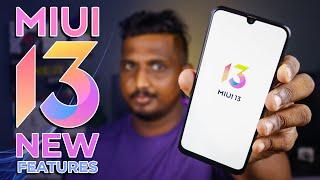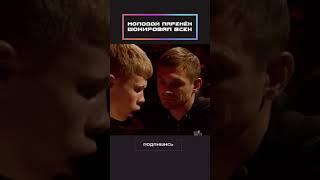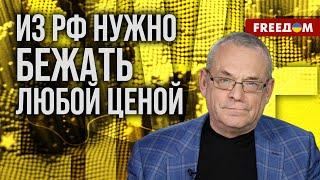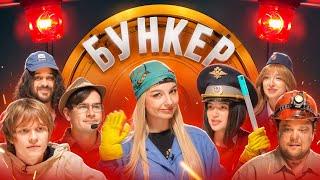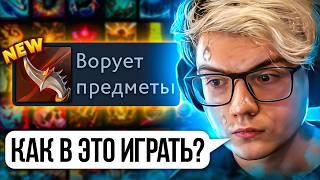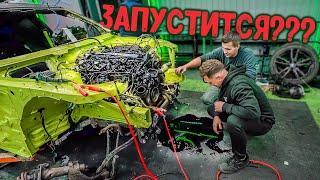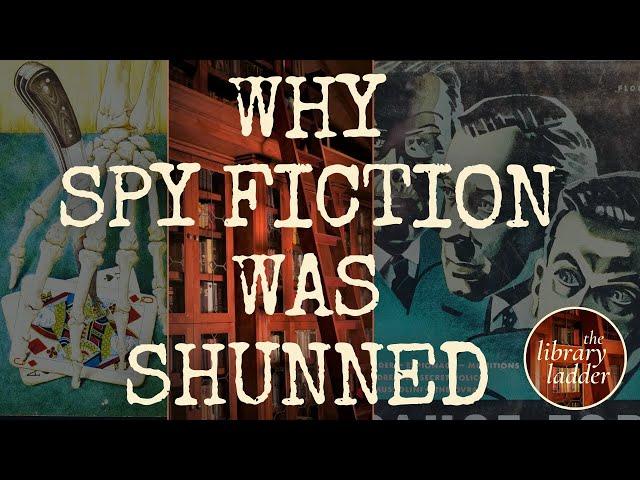
Modern Spy Fiction's Debt to Poe, Arsene Lupin & the Crime Pulps; An Early History of the Genre
Комментарии:

Eric Ambler is the greatest! I especially recommend PASSAGE OF ARMS, THE LIGHT OF DAY, and DR FRIGO.
Ответить
Conrad’s Secret Agent
Ответить
Does Harry Flashman count? EDIT: nevermind, writen after ww2
Ответить
Great thesis and excellent supporting analysis. Having some insight into the world of espionage, I suggest Le Carre is the standout. His earlier works through to “Smiley’s people” are professionally and culturally very realistic. He returned to form in his later books and with the exception of the “Constant Gardener”, “The Night Manager”and his homage to Greene with “the Tailor of Panama” I suggest the middle books lost a bit of their edge. I should add that “The Russia House” with its occasional plot element Pfizer Penkovsky/Wynne case has merit.
Ответить
Wow, I loved this video!
I especially appreciated how you portrayed how Bond 'worked' - the environment he was in when created and it's part in changing the public's perceptions to such characters.

Can you please make a video about gentleman thieves genre? Otherwise, thank you very much for your content. I primarly really enjoy your fantasy videos.
Ответить
Macguyver FTW
Ответить
I love Le Carre novels I've read 3 all are fantastic
Ответить
This is one of the best spy fiction history breakdowns I have seen in recent time. Some of these authors I recall from the Spybrary Top 120 Author List. The history of world events, evolutions in literature and changing societal attitudes really sells it. Please consider making dedicated content of Eric Ambler and Graham Greene. They are often overshadowed by their successors.
Ответить
I never really thought too much about the origins of the spy story. Although I would have thought that greater internationalism, and changing technology would have played a part in that development. It's one thing to intercept someone's mail. It's an entirely different thing to tap a phone line, which of course would not have been possible before phones existed. And it's difficult to underestimate the importance of movies and television on the popularity of spy stories, especially the explosion that occurred in the 1960s, although earlier Hitchcock films helped that process along as well.
Chesterton's The Man Who Was Thursday was an interesting and unexpected book, capturing Chesterton's love of paradox. But Chesterton is almost a genre to himself. Of course I liked the action and adventure involved in Bond stories, but I was quite impressed by the more realistic portrayal of espionage in John LeCarre's books, and how different that was from Bond. Thrillers like Buchan's 39 steps were good, but I think the professional spy tends to make a better spy story than the amateur spy thrust into circumstances.

I loved this video. As a spy novel fan, it was fun to see you mention some of my favorite writers
Ответить
While it is nice that you mentioned Lady de Winter, but you forgot Cardinal Richelieu, the person that had the largest and most efficient spay network at the time. Not just in fiction, but for real. Some of them came from his personal guard, but many others didn't even know that they were working for him. It enabled Richelieu to keep track of his enemies, be they foreign or at home. Even King Louis XIII, the King Richelieu was supposed to serve, were under surveillance.
True, it isn't shown much in the novels, except that he is able to send messages faster than the Musketeers can ride to have people ambush them among other things.

Interesting.
Ответить
Len Deighton's IPCRESS FILE
Ответить
Harry Palmer!
Ответить
Arsene Lupin is one of my favourite literary characters great to see how influential his stories still are. I haven’t read much Spy fiction just the first James Bond and a few Matt Helm novels but this video has peaked my interest. 🕵️♂️
Ответить
I would add that it needed the more widely social acceptability of sex as a selling point. Ian Fleming needed Playboy magazine to serialize his spy novels in America, starting an association that lasted into at least the late 80's. Sexy women, and Bond as a sex symbol, were inextricably part of the movies from the very start. Bond was not alone in this, as has been lampooned in spy parodies as far back as spy parodies exist. In more serious works, the manipulation of vulnerable men by the sexually provocative femme fatales in the "honey trap" is a common trope. Also, in real life. That trap catches both sexes, but I feel like the spy novels that I have read focus more on the men. It's obviously not a rigorously scientific review of the idea. You could perhaps roll this into the concept of "desensitization to the seamier elements of life", but I think it's specific enough to warrant its own discussion. Possibly not something that you want to include on the channel; I don't know your editorial preferences.
Ответить
This makes me think of another topic i know nothing about but seems like the opposite of this in a way, what happened to swashbucklers? I have a vague romanticized image of them in my mind from probably a few movies or shows but when it comes to books, and movies shows and games for that matter, i cant think of many examples especially not recent ones. What are some good and/or classic examples of swashbucklers you might recommend reading?
Ответить
Part of why they had the bright colors is so that you knew who was who and you didn’t shoot your own teammates. The British also used their colors and rank and file system as intimation, making them seem like a big over bearing force. Saying it was purely about honor is also too simplistic.
Ответить
I know they’re TV rather than literary examples, but I can’t think of fictional spies without two prime examples from my youth, John Steed and Emma Peel, coming to mind. As always, I enjoyed the video.
Ответить
Just watched this post for the first time, TLL. An education in the spy novel genre in less than 25 minutes? Now THAT's is a neat trick, worthy of any modern fictional spy anti-hero! My introduction to the world of spies occurred in movie theatres during the 1960's and I enjoyed a reimmersion later, when I bought a collection of Ian Fleming 007 paperbacks at a thrift store liquidation sale. This was a very astute and well-presented (and well-written) dissertation on the genesis of the spy novel, a subject I had given little thought to until now. Well done sir! Cheers.
Ответить
I was so happy to hear you mention the Prisoner of Zenda in relation to this topic and the Ruritanian as a sub genre. I love that novel (though unfortunately the sequel, Rupert of Hentzau leaves a bad taste in one’s mouth.) I was unaware of the three Graustark stories you flashed on the screen. I’ll have to track those down.
Ответить
i really love your vids — i always learn something — what an excellent theory about the birth of a genre — very interesting as usual 👍
Ответить
Quite true regarding the quality of the Nick Carter "Killmaster" series of spy novels. Obviously the anonymous authors did not spend much time on them - in fact, several of them including Danger Key pillaged whole paragraphs, word for word, from Ian Fleming.
Ответить
In the 1960s and 1970s the fictional detective Nick Carter was repurposed into a Bondian spy in numerous novels. The quality varied from ok to downright terrible, but I suspect that many of the authors honed their craft on these anonymous works and went on to produce better fiction under their own acknowledged authorship. This was the road travelled by Martin Cruz Smith when he wrote "The Inquisitor" series and then went on to create Russian Police Inspector Arkady Renko in the series that started with Gorky Park.
Ответить
Eric Ambler’s secret identity is Bookpilled.
Ответить
Yay for Mrs. Polifax! My sister and I love those books!
Ответить
What about Kipling's novel _Kim_? It's a great spy story.
Ответить
This was such an informative and interesting video. Really appreciate how you go as far back into the history of literature as you can - the roots of genres are something that's very often neglected in modern genre discussions, and it's great to get that grounding here.
Ответить
The way you describe the gentlemen thieives and likeable spies makes me thing a lot about Sparhawk from the David Eddings novels. He's a part of what could be considered an order of "paladins" that nonetheless know when to act somewhat less than honorably, but can still be considered honorable.
Ответить
I prefer the human element. In fact, I have of late realized how much I miss them. Ludlum and Forsyth were favorites.
Ответить
Fantastic video! Will we ever have a video that focuses on the master of spy fiction, John le Carre?
Ответить
So glad you managed to fit in the Spy vs. Spy rivals, not to mention Nick Fury.
Ответить
The shift in open-warfare tactics so common throughout the Von Clausewitz era of European combat, towards more 'partisan' skirmishing and more clandestine warfare, really occurred in spades when senior officers realized they would not be meeting each other off of the battlefield. So many of the ethical codes surrounding hostage taking, officer capture, objective-based warfare, etc.. Were also based around gentlemen who had every reason to believe that they'd have to deal with each other after the war was concluded. Therefore, much like lawyers and other adversarial professions today, where two lawyers may fight all day in court may end up drinking together when the case is concluded, so too were noble-officers concerned about their reputation and prestige among even their enemies. Once warfare became mechanized, so too was its organization, and while thousands of soldiers shuddered a collective sigh of relief that fox-hunting noblemen cannot just buy their commission anymore, they traded an eloquent rules-based meatgrinder for a cold, synthetic, distant, rules-free meatgrinder in World War 1 and 2.
This makes me wonder whether or not the massive uptick in espionage fiction in the 1930's and 1940's also assisted in assuaging the public's perception of upper-class elites: After all, so much spy fiction is about the aristocratic class going out of their way behind enemy lines to save Tom, Dick, and Harry in the trenches. Excellent video!

Very interesting! Thanks for the history lesson ✌️
Ответить
Wow Bridger! This was a fantastic “Thesis”. I didn’t know much of this. I’m looking forward to your video about the Bond novels.
Ответить
<3 <3 <3 <3 <3
Ответить
Awesome video! You have great taste, I’m primarily a nonfiction reader but I’ve started to dabble in fiction.
Ответить
Great video Bridger. I thoroughly enjoyed it. If you're interested in podcasts The Rest is History did a great episode on James Bond and another on Sherlock Holmes
Ответить
You left out Joseph Conrad's THE SECRET AGENT. I would also argue another seminal influence was R. H. Bruce Lockhart's 1932 book "Memoirs of a British Agent"
Ответить
Looking forward to the Bond deep dive. I am a fan of both the films and the novels, but the characters are quite different.
I also think Walter Gibson's The Shadow pulps are an underrated influence on later spy/espionage stories. They are more crime/detective stories, but some of the "tricks" The Shadow and his agents use could be right out of a later spy yarn.

This was a very enjoyable video. After you asked the first question I was immediately thinking; "I wonder if he will mention Buchan or Chesterton" — two of my schoolboy favourites — and of course you did. Also, the editing of the video was fantastic; creative and professional beyond even your usual standard. I am looking forward to your treatment of the Bond novels (another of my schoolboy favourites). Please keep producing these wonderfully informative and entertaining videos.
Ответить
Excellent video Bridger! I was curious about spies and espionage in modern fantasy. (I was looking to add books to a TBR pile that’s already way too big.) I believe someone on Reddit mentioned Le Carre’s work once. (Tinker, Tailor, Solider, Spy. I believe.) I have never read a spy novel before, but a series of books, I always wanted to try was the James Bond novels. I also had the Retief series referred to me by an older co-worker whose been reading fantasy and sci-fi since the 80s. I was it was on my TBR. But I think I will give Retief a shot sometime next year. Would you happen to have any advice for a dark fantasy reader interested in trying some spy novels?
Ответить
I like your videos, but the way you talk...it's just to phony, can you speak in a manner not so weird all the time? You can have intensity and mystery in your tone, without the highbrow tone and face
Ответить
Really excellent analysis of the genre. I'd be interested to know what you think of Joseph Conrad's Secret Agent and how it fits into the genre's development.
Ответить
Very cool! Thanx for the informative history lesson! I always come across those Donald Hamilton novels when I'm out hunting, but even more so with Don Pendleton's 'Executioner' series, which they continued into oblivion long after he stopped writing them himself. Fleming's Bond novels pop up a lot surprisingly, even the vintage ones, so they must've printed those many times over back at their height.
Ответить
Great video..informative and entertaining!
Ответить
That was very informative. Thank you.
Ответить
Great vid, i loved it, if you had to pick what would be your favourites autors or even books?
Ответить
Wow, I loved this video!
I especially appreciated how you portrayed how Bond 'worked' - the environment he was in when created and it's part in changing the public's perceptions to such characters.





